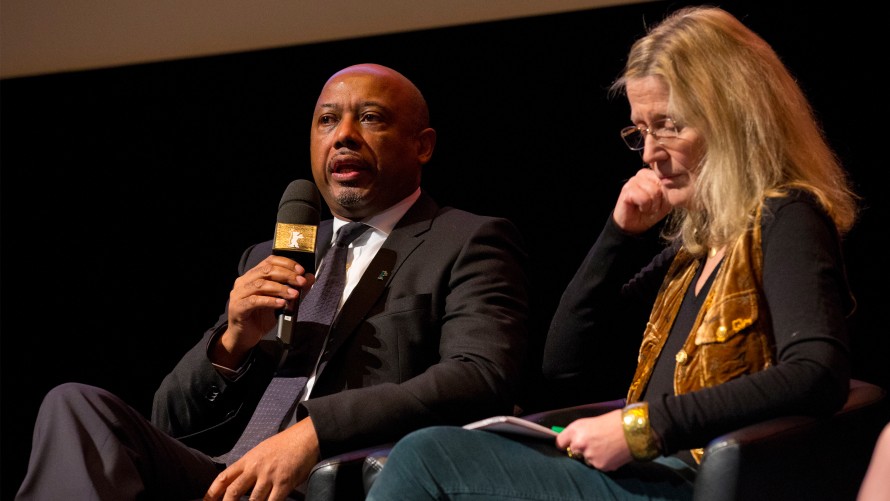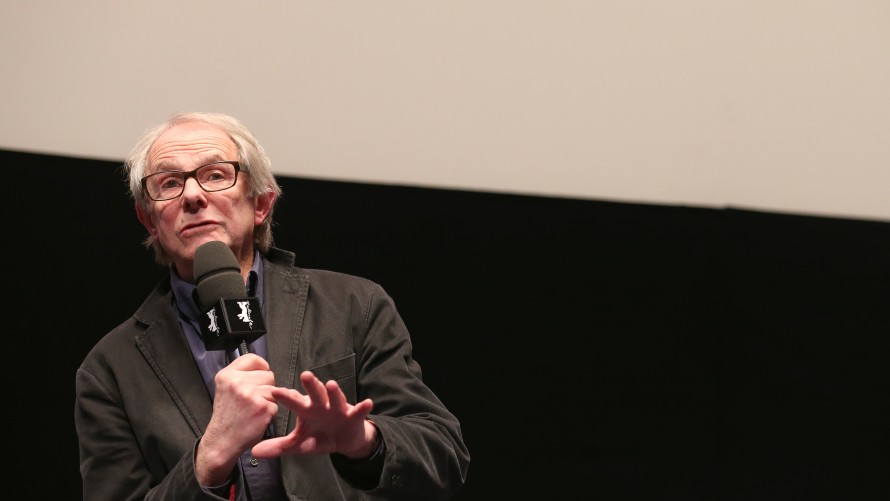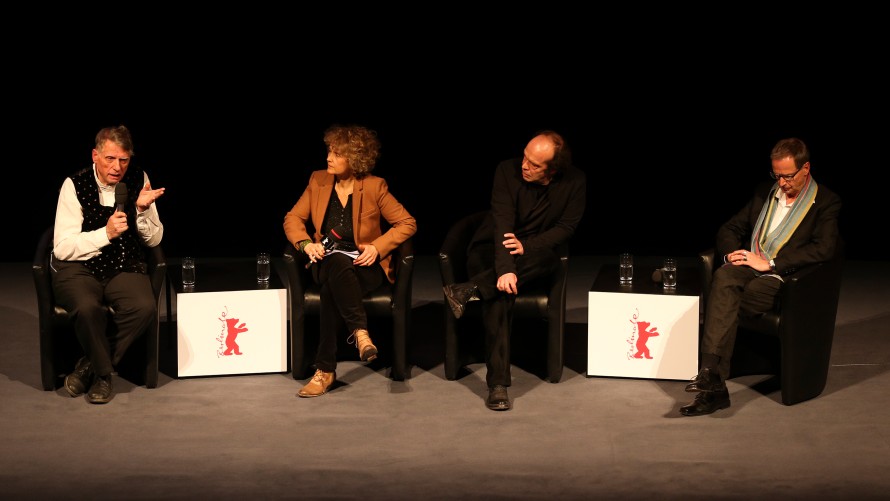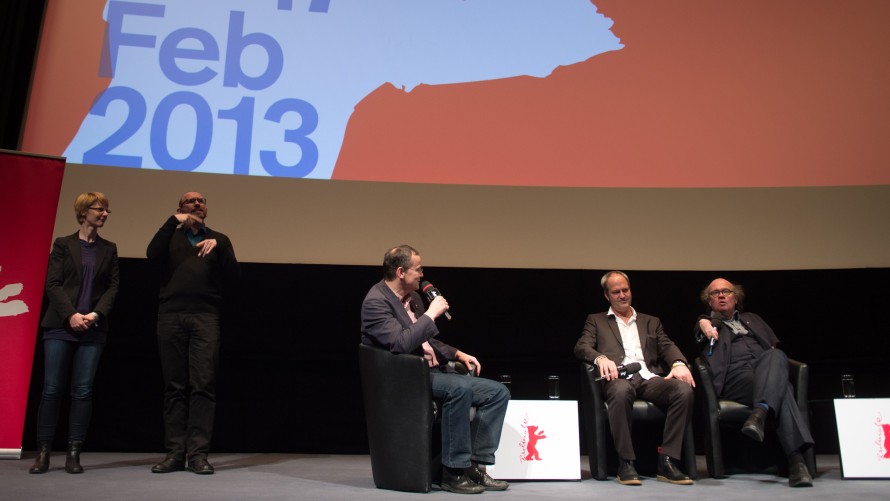2013 | Berlinale Special
Film Discussions at Haus der Berliner Festspiele
In 2013 Haus der Berliner Festspiele hosted again discussions with movers and shakers, key players and experts after selected screenings. Building upon the success in 2012, the Berlinale offered a space for an extensive dialogue with the audience. At five events a total of five documentaries from the Berlinale Special programme were screened.

Assistance Mortelle – extracts from the panel discussion
2013 the programme opened with Raoul Peck's political documentary Assistance Mortelle (Fatal Assistance). Three years after the terrible earthquake hit Haiti, Peck reveals the disillusioning results of the work undertaken by numerous NGOs whose actions are often determined by marketing strategies. Peck was born in Port-au-Prince and was Haiti's Minister of Culture between 1996 and 1997. His film gives voice to those directly involved as well as political decision-makers. Following the screening, Peck tried and reconstruct the failure of the international community in a discussion with two of the main players in the reconstruction effort: politician Priscilla Phelps and Haitian engineer Joiseus Nader - both of whom feature in Assistance Mortelle.
The discussion was moderated by Christiane Grefe, editor of the weekly newspaper Die Zeit.

The Spirit of ´45 – extracts from the panel discussion
Following the screening of his film The Spirit of ´45, director and doyen of European auteur cinema Ken Loach entered into discussion with the audience. Well known and highly regarded for his socially engaged filmmaking, Loach has already been a guest at the Berlinale several times, most recently with the anthology film Tickets which screened in Competition in 2005. In 2004 he was awarded the Prize of the Ecumenical Jury and the Prize of the Guild of German Art House Cinemas for Ae Fond Kiss. In his documentary The Spirit of '45 he speaks to eyewitnesses from the post-war era about the reconstruction of Britain as a welfare state and its radical destruction by Margaret Thatcher's neo-liberal policies.
The discussion was moderated by the historian and journalist Michael Sontheimer.

Unter Menschen – extracts from the panel discussion
Directors Christian Rost and Claus Strigel presented their political thriller documentary Unter Menschen (Redemption Impossible) which reveals the suffering of a group of chimpanzees abused in the name of medical research. The animals were infected with HIV and hepatitis in the laboratory. After they had spent 15 years living in isolation, the experiments on the chimpanzees were abandoned without conclusive results. Their subsequent journey into freedom includes a stay in an Austrian safari park and ends at the "Gut Aiderbichl" animal sanctuary where the chimpanzees are released out of doors for the first time.
The film directors discussed the decades-long odyssey of the chimpanzees and their carers with Josef Schmuck from the Documentation Center for Species Protection in Graz, Austria. The discussion was moderated by filmmaker Doris Metz.

Gold - Du kannst mehr als du denkst & Mein Weg nach Olympia - extracts from the panel discussion
The programme concluded with two films about the 2012 Paralympics: Gold - Du kannst mehr als du denkst (Gold - You Can Do More than You Think) directed by Michael Hammon and Mein Weg nach Olympia (My Way to Olympia) directed by Niko von Glasow. Radio Eins presenter Knut Elstermann moderated the post-film discussion with the two directors. Alongside the paraplegic swimmer Kirsten Bruhn, the wheelchair marathon athlete Kurt Fearnley and the blind long-distance runner Henry Wanyoike, the disabled boccia champion Grigoris Polychronidis and the one-legged swimmer Christiane Reppe were also present. Both film screenings had wheelchair access and audio-description. The subsequent discussion had sign language interpretation.